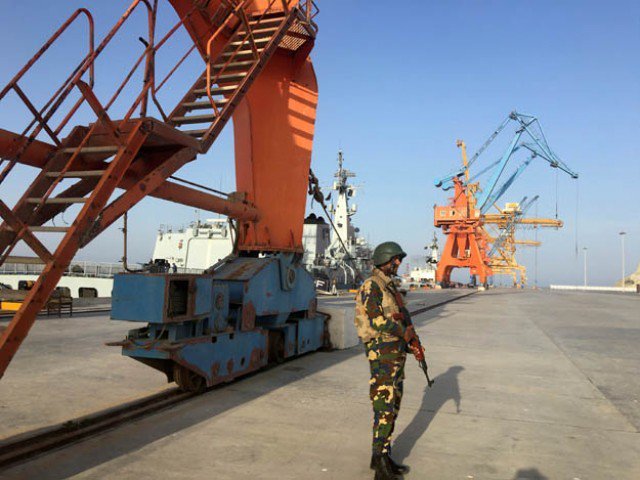By: Kamran Yousaf
On December 3, Iranian President Hassan Rowhani inaugurated the first phase of Chabahar port. Pakistan is not part of the project, yet its minister for ports and shipping was standing next to the Iranian President during the ceremony. This was no coincidence, as Hasil Bizenjo was asked to stand next to Rowhani in a carefully choreographed move.
Days before Iran started preparations for the inauguration ceremony, it invited Pakistan to send a ministerial-level delegation for the event. Tehran followed up with not only the formal invitation but used all available diplomatic channels to make sure that the Pakistani delegation attends the ceremony.
The objective behind this move was clear Iran wanted to send a message that it would not allow India or any other country to use Chabahar against Pakistan, said a senior Iranian diplomat, who requested not to be named so that he could speak freely on the subject.
Such a firsthand account of close cooperation between Pakistan and Iran is unusual and represents a significant shift in the two neighbours’ ties, which have often been marred by a trust deficit and mutual suspicion. The turnaround is also important when seen alongside Pakistan’s participation in the Saudi-led counter terrorism coalition. Iran, which is not part of the grouping, considers the initiative an attempt to further Saudi Arabia’s agenda in the region. That is one of the reasons that Pakistan has been treading a careful path on the issue as it has the potential to undermine ties with Iran.
Despite any allusions to a gulf, Islamabad and Tehran have been moving closer to each other, and diplomats on either side feel that the two sides understand and appreciate each other’s perspective. Pakistan, according to official sources, has given firm assurances to Iran that Islamabad would not become part of an initiative that targets the Islamic Republic.
Tehran, in return, has pledged that it would not allow any regional country including India to undermine Pakistan’s interests. Far from India’s portrayal of Chabahar Port, Iran does not see it as a rival to Gwadar Port. After the inauguration of the first phase, Indian officials and commentators began presenting it as a major strategic victory to sidestep Pakistan.
But the Iranian diplomat played down the India hype as ‘psychological warfare.’ He said the Iranian president has already mentioned that Chabahar and Gwadar ports would complement each other in the future and that a memorandum of understanding to this effect has already been signed.
This unprecedented bonhomie did not happen overnight but after months of rigorous efforts from both sides. The visit of army chief General Qamar Javed Bajwa was the culmination of those efforts. “It was an excellent, excellent visit,” emphasised the diplomat. The two sides developed a broader understanding of bilateral ties and key regional developments.
He added that military and intelligence cooperation have deepened greatly in the past few months as officials from the security establishments on either side of the border speak to each other more often, something that was not possible just a few years ago.

